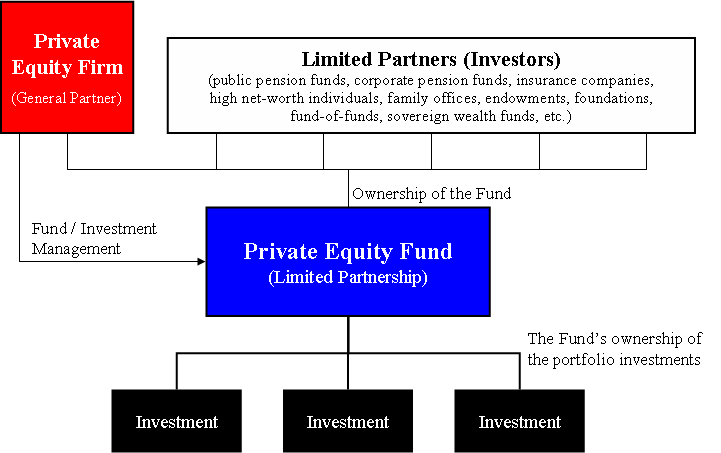This, together with other mechanisms popular in the private equity market eventually result in the acquired firm’s appraisal increasing significantly in value from the time it was acquired, producing a profitable exit strategy for the PE firmwhether that’s a resale, an initial public offering (IPO), or another choice (impact opportunities fund). One popular exit method for private equity involves growing and improving a middle-market business and selling it to a big corporation for a large revenue.
Nevertheless, the huge majority of transactions reside in the center market at the $100 million to $500 million range, and the lower-middle market below $100 million. Since the very best gravitate towards the larger offers, the middle market is a substantially under served market. There are more sellers than there are highly seasoned and positioned financing specialists with comprehensive purchaser networks and resources to manage an offer.
Flying listed below the radar of big international corporations, a number of these small business typically supply higher-quality customer support, and/or niche products and services that are not being provided by the large conglomerates. Such upsides attract the interest of private-equity companies, as they have the insights and savvy to exploit such chances and take the company to the next level.

Private-equity investors must have reputable, capable, and reliable management in place. Most supervisors at portfolio companies are given equity and bonus compensation structures that reward them for striking their monetary targets. securities fraud racketeering. Such alignment of goals is usually needed before a deal gets done. Private equity is often out of the equation for individuals who can’t invest countless dollars, but it should not be.
There are numerous private equity investment firmsalso called service development companiesthat deal publicly-traded stock, providing typical investors the opportunity to own a slice of the private equity pie. Together with the Blackstone Group there is Apollo Global Management (APO), Carlyle Group (CG), and Kohlberg Kravis Roberts (KKR), best understood for its massive leveraged buyout of RJR Nabisco in 1989.

These mutual funds are typically referred to as funds of funds. Typical investors can likewise buy shares of an exchange-traded fund (ETF) that holds shares of private equity business, such as ProShares Global Listed Private Equity ETF (PEX). With funds under management currently in the trillions, private-equity firms have actually become attractive investment vehicles for wealthy individuals and organizations (titlecard capital fund).
As the industry attracts the finest and brightest in corporate America, the experts at private-equity companies are typically successful in releasing investment capital and in increasing the values of their portfolio companies. Nevertheless, there is likewise fierce competition in the M&A marketplace for great companies to buy. As such, it is essential that these companies establish strong relationships with transaction and services experts to secure a strong deal flow.
Private Equity Funds

Particular funds can have their own timelines, financial investment objectives, and management approaches that separate them from other funds held within the exact same, overarching management firm. Effective private equity companies will raise numerous funds over their lifetime, and as companies grow in size and complexity, their funds can grow in frequency, scale and even uniqueness. For more information about real estate investing and - visit the blogs and -.
Tyler Tysdal is a lifelong entrepreneur helping fellow business owners offer their organisation for maximum value as Managing Director of Freedom Factory, the World’s Best Business Broker situated in Denver, CO. Freedom Factory helps business owners with the biggest deal of their lives.
Prior to getting in politics in the 1990s, Romney co-founded Bain Capital, among the nation’s biggest and most lucrative private equity funds. David L. Ryan/Boston World via Getty Images David L. Ryan/Boston World by means of Getty Images Prior to getting in politics in the 1990s, Romney co-founded Bain Capital, among the nation’s largest and most profitable private equity funds.
Ryan/Boston Globe by means of Getty Images In the run-up to Saturday’s GOP governmental main in South Carolina, candidates have actually clashed over the role of Bain Capital a firm that either creates or eliminates tasks, relying on whom you believe. Front-runner Mitt Romney sees the intense side. Prior to going into politics in the 1990s, he co-founded Boston-based Bain Capital, among the nation’s largest and most rewarding private equity funds (tyler tysdal business)..

The benefits can be substantial, but the dangers are fantastic too. Private equity firms headquartered in the U.S – grant carter obtained.: Buyout/growth growth funds currently fundraising in the U.S.: Private equity-backed business headquartered in the U.S.: Employees worked with by U.S. private equity-backed companies: Notes: Since September 2011 Source: The Private Equity Growth Capital Council In some cases, the private equity firm uses techniques that critics state play out more as “vulture capitalism” an expression that some people are utilizing to describe a process where investors make massive earnings while needlessly laying off workers.
It discovered 22 percent either filed for insolvency or shut down within 8 years of Bain’s financial investment. Even a number of business that at first provided Bain with big revenues later on ran into difficulty – partner indicted counts. Of the 10 deals that produced more than 70 percent of Bain’s gains, four eventually declared insolvency. But the companies that was successful were hugely successful.
How To Choose The Best Private Equity Firm
In the end, the spruced-up company can be offered to a bigger corporation, or it can start selling shares in a public stock market. The revenues can be used to settle old loans and reward the investors. Critics state the technique frequently results in needless layoffs that do little to really conserve the business.
In this scenario, the equity firm offers capital (money) to a startup endeavor and then helps support the small business as it grows. The private equity firm hopes to make great deals of cash from successful start-ups, however the investors are taking bigger dangers than bank lending institutions would want to take.